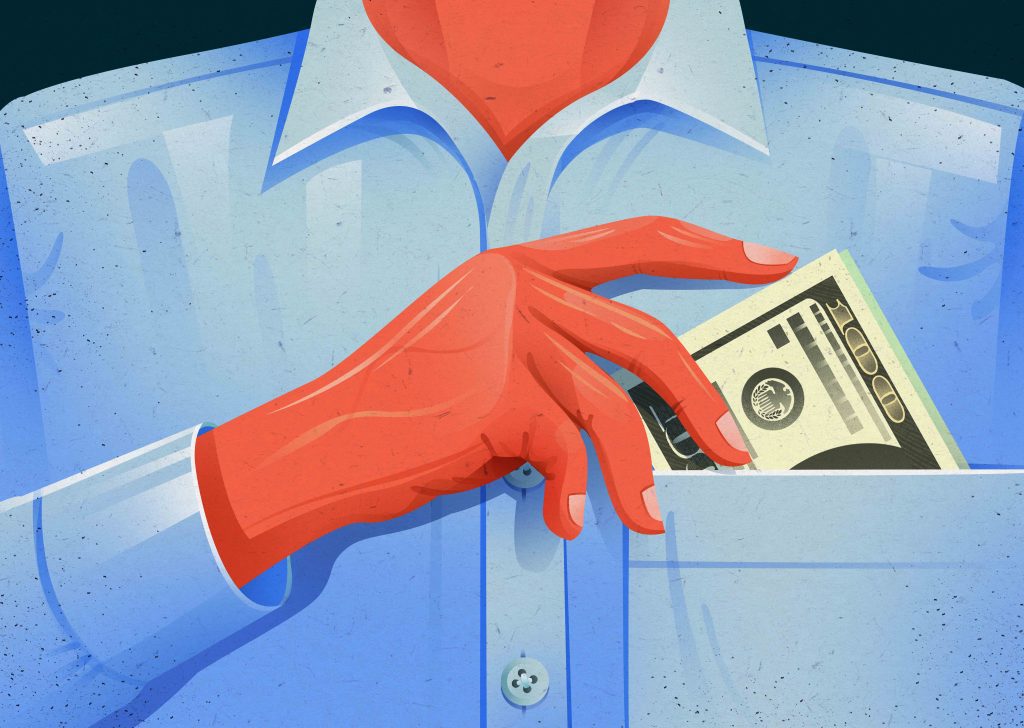A recession is a business cycle contraction that occurs when there is a general decline in economic activity. Recessions typically occur when there is a widespread decrease in spending. This could be caused by a financial crisis, an external trade shock, an adverse supply shock, or the bursting of an economic bubble.
Build an emergency fund prior to recession
Deposit a fixed amount of money in a set-aside emergency fund to prepare for the coming recession. This is one of the ways to cut down costs. Banks these days allow their customers to build emergency funds through their apps. This can be the easiest way to start saving without having to visit a bank branch.
Building an emergency fund is now easier than ever. We suggest not deferring the task of opening an emergency fund any longer.
Take wise steps with your existing investments
What about investments? Do experts suggest investing at this point in time? Should investors with slump portfolios hold or sell off their current investments? There are many questions in the mind of investors.
As per experts, a recession is just another economic phase that isn’t going to stick forever. Recession is no excuse to not invest. The only suggestion would be to invest wisely. Do not invest in companies that are most likely to be affected. Some industries always stay recession-proof like health care, daily utilities, consumer staples and more. Remember, not every industry is affected equally.
Talking about your existing investments, if they are going down in value day by day, experts suggest holding on to them and not selling them off in a panic. This erratic behaviour worsens the market furthermore. If the investor has sufficient idle money and won’t impact their current standard of living, it’s best to hold on to them.
Top 10 Ways to Cut Costs and Save Money in a Recession
1. Review the expenses and make changes where necessary
It’s essential to take a close look at the finances and make adjustments to ensure that we live within the means. This may include making changes to the budget, such as cutting back on non-essential spending or finding ways to save money on essential expenses.
It may also mean looking at our income and finding ways to increase it. This could involve looking for a new job or starting a side hustle to bring in some extra cash.
2. Automate the finances
One way to stay on top of the finances is to automate as much as possible. This can help anyone to avoid late fees and penalties and keep track of their spending. There are many ways to automate finances, including setting up automatic payments for bills, investing in a budgeting app, or using a financial tracking tool like Mint or Personal Capital.
3. Invest in yourself
Investing in themselves is one of the best things anyone can do for financial health. This may include taking courses or classes to improve job skills, investing in a hobby or side hustle that can generate additional income, or simply taking steps to reduce stress and live a healthier lifestyle.
4. Live below the means
One of the best ways to save money is to live below the means. This means spending less than anyone earns and saving the rest. It may require changes to the lifestyle and cost of living, such as downsizing the home, driving a less expensive car, or eating out less often. However, living below the means can help anyone build up savings which can cushion during tough economic times.
5. Get rid of debt
Another way to save money is to get rid of debt. This may include paying off credit cards, student loans, or other types of debt. Getting rid of debt can free up money that can be used to save or invest.
Once anyone is debt-free, they will have more money to save and invest, which can help them reach their financial goals quicker and easier.
6. Make a budget and stick to it
A budget can be a helpful tool for saving money. A budget can help anyone track their spending, set financial goals, and make adjustments to ensure they live within their means. It’s important to remember that a budget is a guideline, not a strict rule, so it’s important to be flexible and adjust as necessary.
7. Invest in quality, not quantity
When it comes to spending, it’s important to focus on quality over quantity. This may mean buying fewer things, but better quality items will last longer. It can also mean investing in experiences rather than material possessions.
8. Shop around for better deals
Another way to save money is to shop around for better deals. This may include comparing prices online, using coupons or discounts, or waiting for sales. Shopping around can help to get the most for the money and avoid overspending.
9. Cut out unnecessary luxuries
One way to save money is to cut out unnecessary luxuries. This may include cutting back on cable TV, eating out less often, or taking fewer vacations. While enjoying life is important, cutting back on unnecessary spending can help save money.
10. Have an emergency fund
An emergency fund can help anyone avoid going into debt or using credit cards to pay for unexpected costs. It’s important to have at least 3-6 months of living expenses saved in an emergency fund.
When building an emergency fund, starting small and gradually increasing the amount saved each month is important.
If anyone has hard time-saving money, they can do a few things to make it easier. One option is to open a separate savings account that’s not easily accessible. This helps avoid using the money for non-emergency expenses. Another option is to set up a budget and make sure not to spend more than you can afford each month.
Conclusion
Saving money can seem difficult, but it’s important to remember that even small changes can make a big difference. Anyone can save money by living below the means, getting rid of debt, making a budget, and investing in quality, not quantity. Additionally, shopping for better deals and cutting unnecessary luxuries can help save money. Finally, it’s important to have an emergency fund to cover unexpected expenses.
While some economists hint at 2023 recessions, few also predict the economy may be able to narrowly avoid it. No matter what, being prepared is the best way to deal with the crisis. Being prepared will allow you to sail through recessions and any such financial crunch without living like hanging on a wire. By following these tips, anyone can start saving money and survive a recession.


